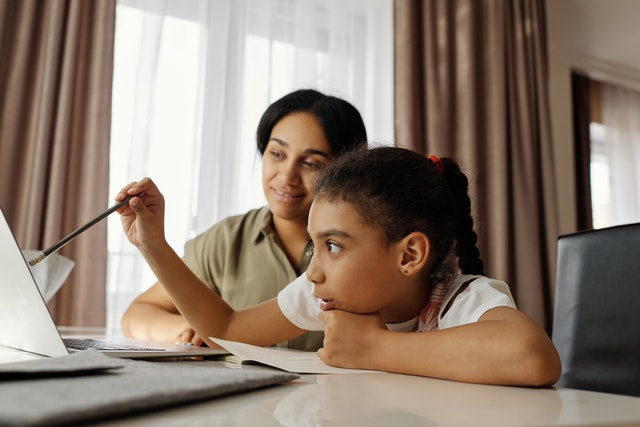When a parent says her child is homeschooled, one of the first questions they’ll probably hear is, “Does your child get enough socialization?”. This is a genuine concern when a child is taught only by their parents. In their own house, and without daily exposure to other kids. Children must be adequately socialized to prepare them for life outside of the home. Children who are homeschooled spend their childhoods alone, avoiding peer pressure, group dynamics, and the ability to learn coping skills.
Understanding:
Parents of homeschooled children have a minimal understanding of what socializing means. No parent wants their kid to be bullied or exposed to immorality. But the “real world” is full of circumstances from which parents cannot protect their children. Children learn how to engage with peers and solve problems due to being exposed to bullies and peer pressure, which is comparable to what they could meet in the “real world.” Parents of homeschooled children sometimes miss the fact that their children’s “classmates” will ultimately become their children’s “real world” coworkers. Peer pressure and bullying are not limited to the classroom; they exist in various forms throughout life (business, politics, pecking orders, etc.).
How to deal?
It is critical for youngsters to understand how to deal with these challenging situations. Homeschooled children socialize in particular ways. But it is confined to other homeschooled children and adults, according to one adult who was homeschooled for twelve years. Children who have been homeschooled can be active, interested, and productive adults. But transitioning from homeschooling to “mainstream” education can be challenging. The fact is that the “mainstream society” they are entering is filled with non-homeschooled individuals. As a result, homeschooled kids must learn to engage with these other people, which can be challenging when they haven’t had the chance to make strong connections and have been isolated from their classmates.
Due to all of these, developing a social skill in their kids is a challenging situation for parents. If you’re concerned about your homeschooled child’s social skills. The problem is how you’re adding socializing activities into their daily routine. Let’s look at a few ways parents can adapt to help homeschooled kids improve social skills:
Make a social activity schedule:
Parents of homeschooled children can integrate the various activities into their daily routines to promote a healthy social life for their children. All of the activities provided by online school students are also beneficial to homeschooled students. The iCademy Middle East, an American School of Dubai, organize school trips for all students to provide an opportunity to develop social skill. These trips also help to experience different activities. The American International School Dubai now provides over 100 online club options.
These clubs are frequently started and led by enthusiastic instructors and students who want to share their enthusiasm for a particular activity or topic with other like-minded students. A teacher supervises all clubs. Many same features as those found in a traditional environment are available at our clubs and some additional perks. The only difference is that instead of meeting face-to-face, students interact through our web-based meeting platform. These clubs also help homeschoolers to interact with other peers.
Here’s a list of all the things you can do with your homeschooled child:
- Encourage your youngster to enter competitions (e.g. Drawing competition, debates, etc.). Some online schools allow homeschoolers to engage in extracurricular activities. The iCademy Middle East, an American School of Dubai, organized school trips for all students to provide an opportunity to develop social skills. These trips
- When you go food shopping, make them take the lead while paying at the billing counters.
- Enroll your child in community classes offered by public libraries.
- Make time for outside activities daily — for example, regularly going to the park will help your kid develop a play circle.
- Join groups of homeschooling parents — socializing with them is the easiest method to establish a social circle for your child quickly.
- While travelling with other adults and their children, group trips (travel packages) are also great approaches to assist your child in developing social skills.
Work hard to exclude all harmful influences:
While we may do a lot to expose a homeschooled child to social life, we must also work hard to exclude all harmful influences. Excessive television viewing, internet browsing, and a preference for a particular set of hobbies are all red flags to look out for. These are deterrents that make youngsters less social. Limiting your child’s TV viewing time. And ensuring that he or she spends a particular amount of hours at the park may be a good starting point.
Common error:
The most common error that most parents make when they first begin homeschooling their children! Most parents want to simultaneously become their children’s classmates, instructors, and playmates. While this is a noble goal, and a kid should find a friend in you. you should not try to fill your child’s socialization needs. Allow them to engage in moderated online networking with their friends. (allow interaction with friends and acquaintances whom you are aware of.
Intermingling and communicating with other children and adults aren’t the only ways to develop social skills. Soft skills like writing, public speaking, and interviewing are also included. Encourage your child to keep a notebook in which they may write anything from five lines per day to a two-page entry; this will eventually help them express themselves better. As kids learn to become aware of their feelings, this quietly aids in the development of EQ (emotional quotient).
Conclusion:
These are a few ways that parents can adopt for helping their child develop social skills while reaping the benefits of homeschooling. Use this as a checklist to keep track of your child’s social development during homeschooling.

